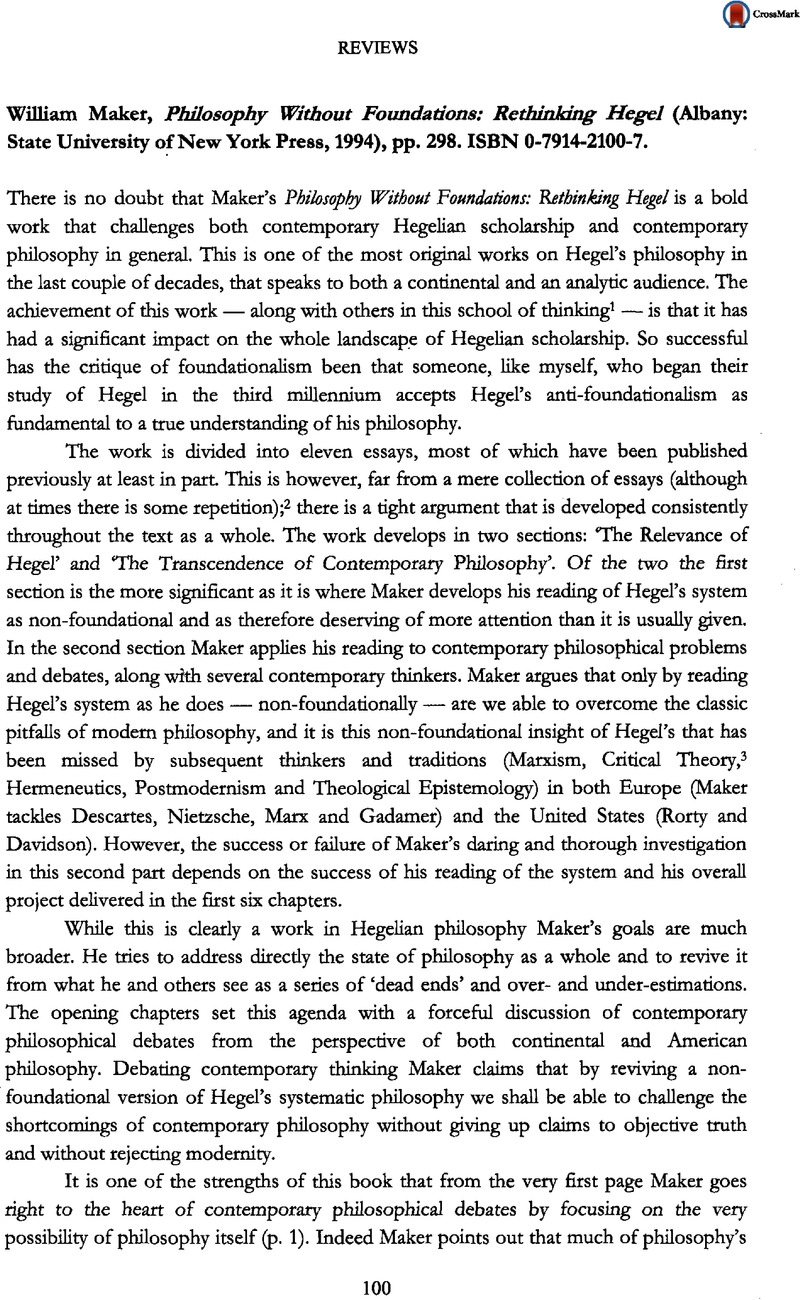No CrossRef data available.
Published online by Cambridge University Press: 23 June 2015

1 Most will be aware of the links between Maker and Winfield and Dove.
2 Perhaps the most significant chapter, ‘Beginning Philosophy Without “Beginnings’” is a reproduction of Maker, William, ‘Beginning’, in Di Giovanni, George (ed.), Essays on Hegel's Logic (Albany: State University of New York Press, 1990), pp. 27–44 Google Scholar.
3 Maker further develops the idea of an Hegelian Critical Theory in Maker, William, ‘The Science of Freedom: Hegel's Critical Theory’, Bulletin of the Hegel Society of Great Britain, vol. 41/42 (2000), pp. 1–17 Google Scholar.
4 Heidegger, Martin, Hegel's Phenomenology of Spirit, trans. Emad, Parvis and Maly, Kenneth (Bloomington: Indiana University Press, 1994), pp. 1 Google Scholar.
5 Harris, H. S., Hegel: Phenomenology and System (Indianapolis: Hackett, 1995), pp. 104 Google Scholar.
6 Heidegger, , Hegel's Phenomenology of Spirit, p. 30 Google Scholar.
7 Ibid.
8 This point is made in an unpublished thesis by Vassilacopoulos, George, ‘A Reading of Hegel's Philosophy’, Ph.D thesis (La Trobe University, 1993), pp. 88–9 n.4Google Scholar. H.S. Harris has also made appeal to Vassilacopoulos' critique of Maker's ‘negative’ reading of the Phenomenology in Harris, H. S., Hegel's Ladder, vol. 2 (Indianapolis: Hackett, 1996), p. 175 n.20Google Scholar.
9 This passage is cited in Vassilacopoulos, , ‘A Reading of Hegel's Philosophy’, pp. 88–9 n.4Google Scholar.
10 Maker, William, ‘The Very Idea of the Idea of Nature, or Why Hegel is not an Idealist’, in Houlgate, Stephen (ed.), Hegel and the Philosophy of Nature (New York: State University of New York Press, 1998), pp. 1–27 Google Scholar.
11 His account of the role of finitude is taken up again in later chapters where he discusses Marx and Gadamer's relation to Hegel.